Provinces and cities across Vietnam are experiencing the coldest period of the year, and the weather is forecast to continue for another five to seven days.
According to the National Center for Hydro-meteorological Forecasting, an enhanced cold spell has been affecting northern Vietnam, causing temperatures to drop to eight degrees Celsius, and below five degrees in mountainous areas, at the beginning of this week.
The summit of Fansipan, the country’s highest mountain peak in northern Lao Cai Province, has been covered by a layer of snow as temperatures dropped to minus one degree Celsius on Tuesday.
The frigid weather is expected to continue.
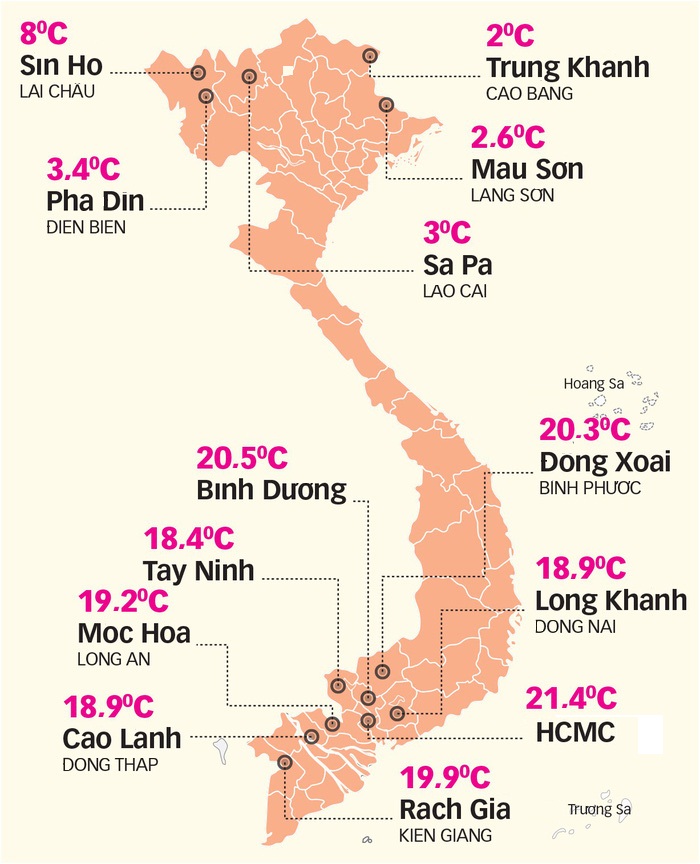 |
| A map detailing temperatures in several Vietnamese localities on Decmeber 19, 2017. |
From December 19 to 21, temperatures are predicted to drop to between nine and 12 degrees Celsius in the delta and from six to nine degrees Celsius in mountainous areas.
In Hanoi, the mercury is anticipated to drop as low as eight degrees Celsius, while the difference in temperature between day and night may be five to seven degrees.
An enhanced cold snap is anticipated to impact the region on December 23, continuing the weather pattern for the next five to seven days, said Le Thanh Hai, deputy director of the forecast center.
The steering committees for natural disaster prevention in northern provinces such as Lai Chau, Dien Bien, Cao Bang, and Lao Cai have requested regular updates to ensure the wellbeing of local residents.
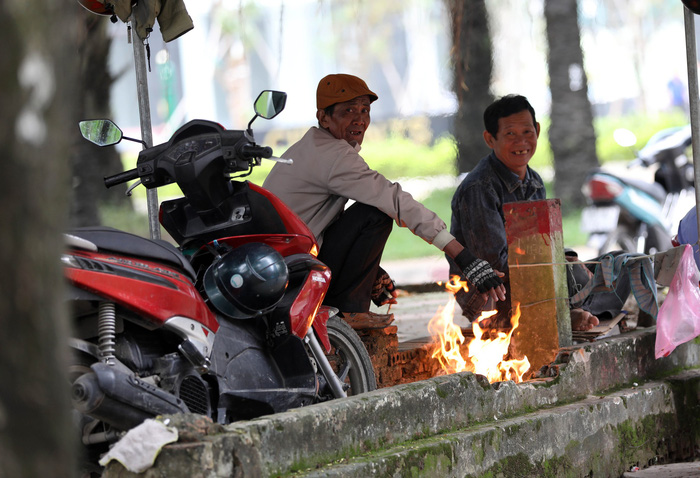 |
| Motorbike taxi drivers sit by a bonfire in Ho Chi Minh City on December 20, 2017. |
Extra attention should also be given to farm animals.
Meanwhile, chilly temps at night and in early morning in southern Vietnam will last until Christmas Eve.
The region is expected to be affected by the new cold spell on December 25.
Water levels in Saigon River will rise on Wednesday due to high tide, causing inundation on several routes in Ho Chi Minh City’s District 7, District 8, Binh Tan District, Binh Chanh District, and Nha Be District.
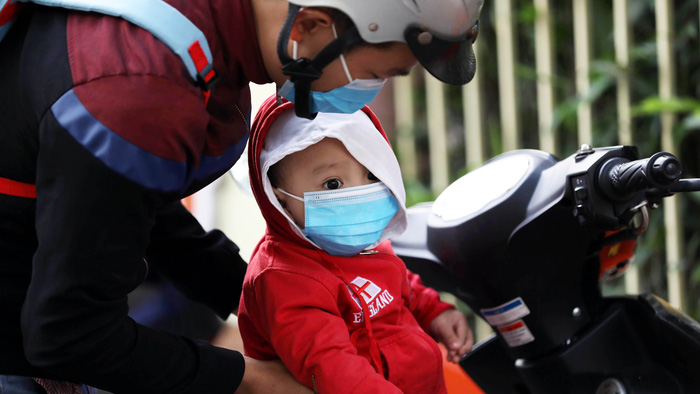 |
| A man prepares warm clothes for his child during the chilly weather. |
Provinces in the Mekong Delta have also been influenced by the brisk weather, especially between 4:00 am and 8:00 am.
Although the phenomenon has little impact on local crops, farmers are advised to keep their cattle and poultry warm.
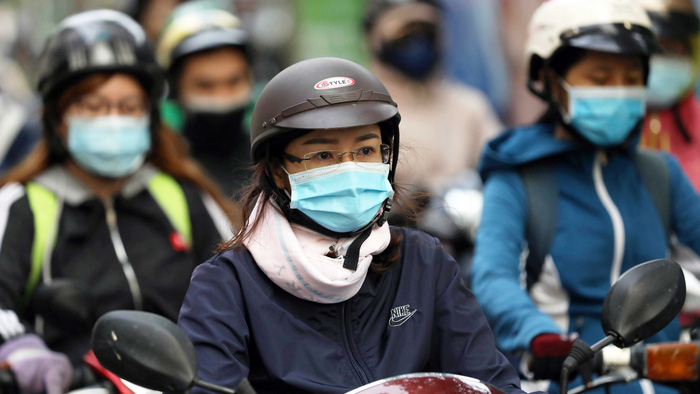 |
| People during a morning commute in Ho Chi Minh City |
As of Tuesday evening, Typhoon Kai-Tak was 140 kilometers southeast of the Truong Sa (Spratly) Archipelago, packing winds at 60 to 75km an hour.
The storm is forecast to continue traveling southwestward before weakening by December 21.
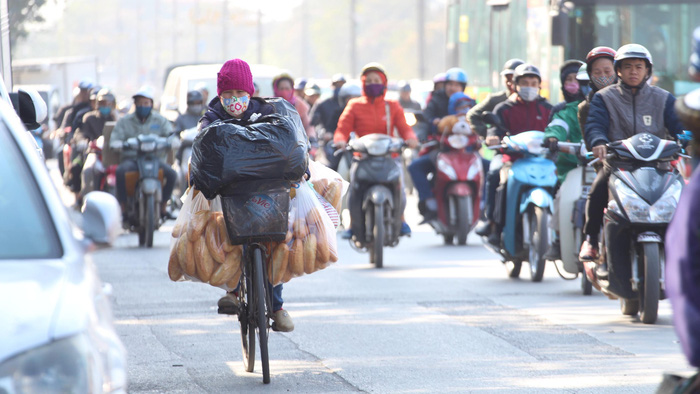 |
| Hanoi residents travel on the morning of December 20, 2017. |
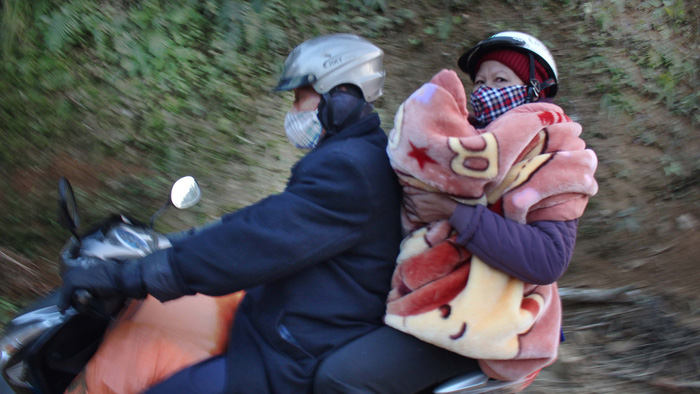 |
| A woman wraps a blanket around her grandchild while traveling in the northern province of Cao Bang. |
 |
| Young students at a primary school in Cao Bang Province |
Like us on Facebook or follow us on Twitter to get the latest news about Vietnam!





















































